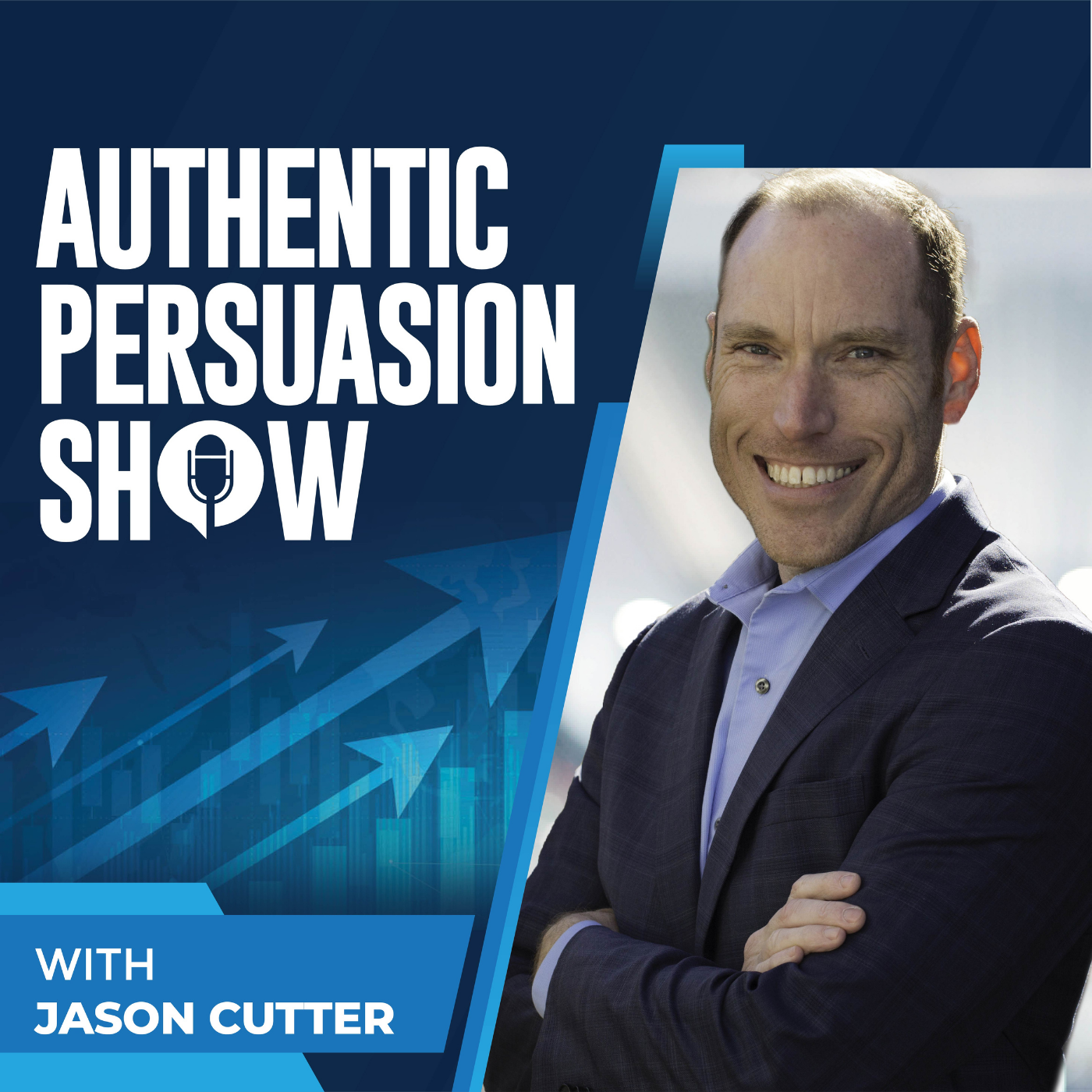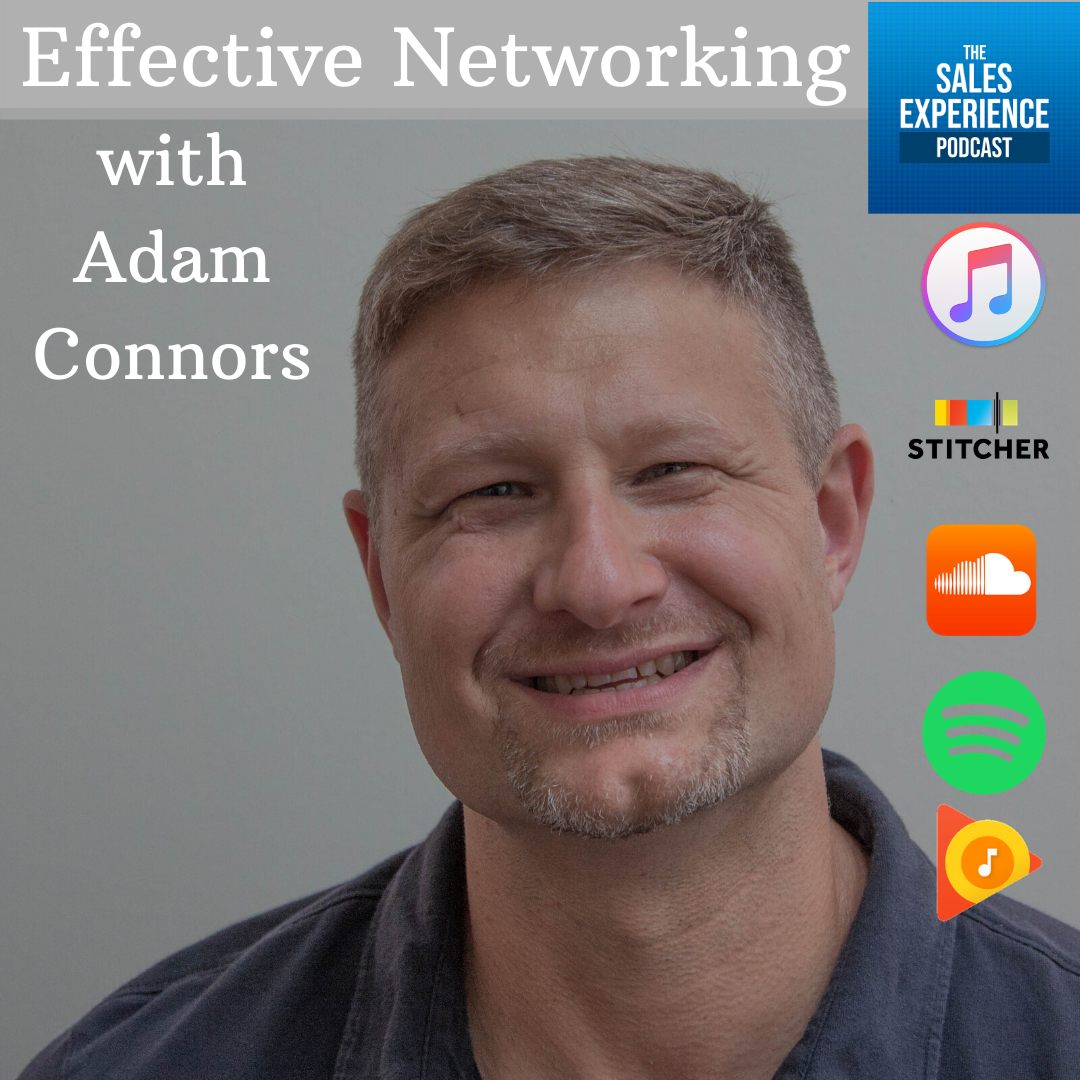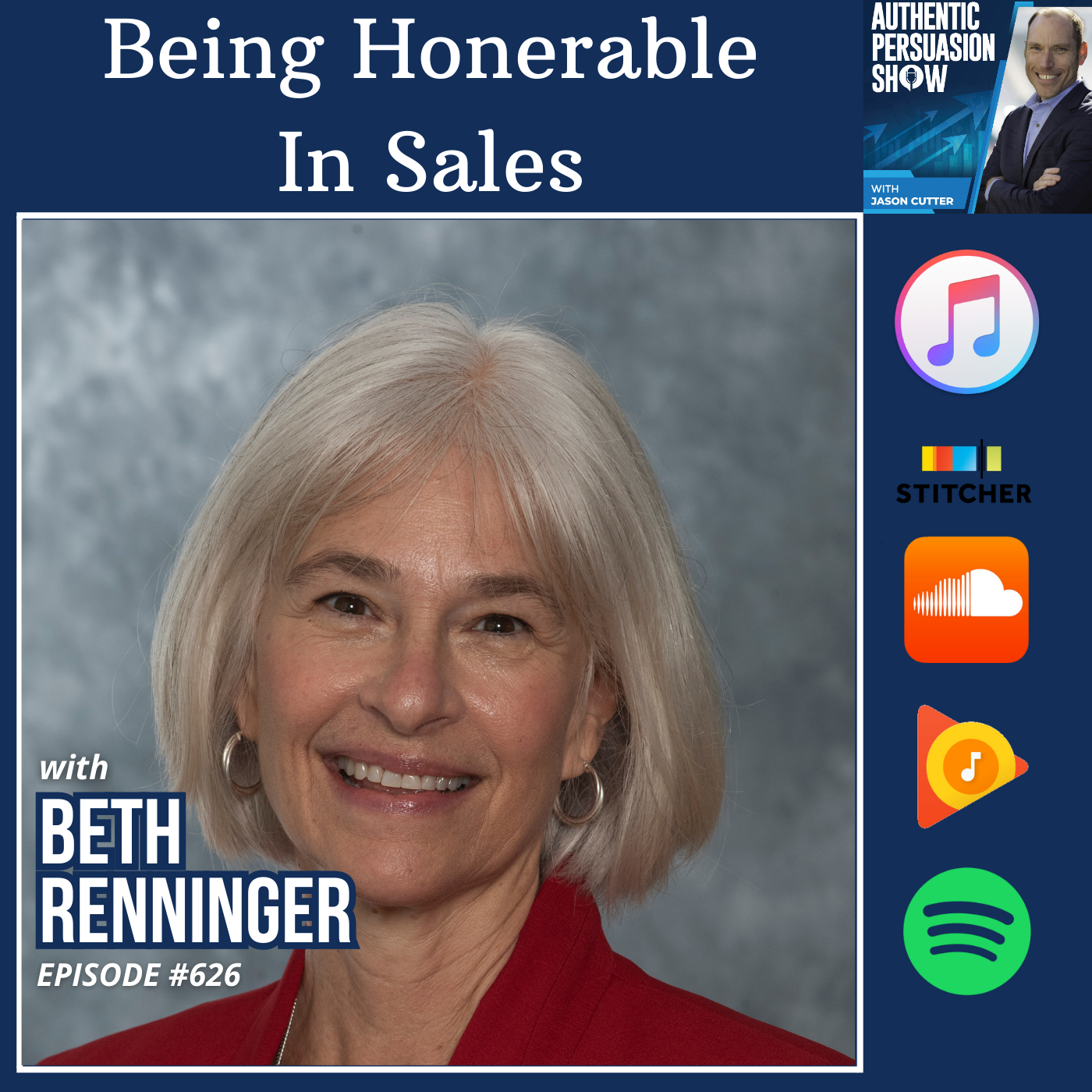Episode Transcript
[00:00:00] Speaker A: Welcome to the authentic Persuasion show. On this episode I want to replay part of a previous show. Maybe you heard the original full length episode and this could be a great refresher and reminder. Or maybe this is your first time hearing this content and the timing could be just right to help you leverage authentic persuasion today in your role no matter what. Here's to your success.
This is the authentic persuasion show.
[00:00:26] Speaker B: What I want to do is talk about two things. This is week now. I'm going to try to cover two things. If you've listened to me for a while, you know, I like to go into some detail, give you as much tactics, strategies, background and ideas so that you can use these things, not just like here's this thing, go use it. I don't even know why it's going to work, but I want to give you the fundamentals for it. So I don't always get to everything on my list of topics, but let's start with the most important thing. And this is what I hear a lot from people and this is, I'll tell you why it fits into this hope step and why I'm talking about it now while we're still in the authentic persuasion pathway. We haven't even gotten to closing a deal yet, right? That's going to come up in the next week or two when we get to the fifth and final step of the authentic persuasion pathway. But for now we've got to talk about the biggest thing that a lot of people ask me about that everyone faces, which is following up. What if you don't close a deal? Right. What happens when you have a conversation with someone and they don't buy on the spot and you have to do some follow up. Now in most sales environments for most people for what they're selling, rarely ever is it a hundred percent one call close now sometimes it might be a one call close. I've worked in many industries where when you talk to someone you can help them on the spot, sign them up for a service. That should happen most of the time, but not all the time. Sometimes people have to check with somebody else, family member, friend. It's always interesting how many people always have a uncle or a relative or a friend that they want to go to has the authority for helping them make decisions no matter what it is they're buying. Right. I've helped people who were in credit card debt get into the various programs for that. And it's always interesting when someone says, well, I got to talk to my uncle because he knows a lot about this oh, really? Has he done this kind of program? No. Has he ever been in that? No. Like, okay. And it really with that is that person doesn't feel safe in the moment, and they're using a lifeline, and they want to talk to somebody else and make sure it's safe. Fundamentally, that means they don't trust you to make them feel safe, and so they're going to somebody who they generally rely on to feel safe. And I won't go into all the details on why that happens, but, uh, you can always hit me up. I'm happy to chat with you about why that happens and what you can do about it in the moment, especially how you overcome that kind of objection or obstacle. There's, I wouldn't say there's always a way. There's generally a way to, to address that and help someone feel safe in the moment. So there's, for most people, there's gonna be a follow up. For very few people, they're closing 100% of their sales 100% of the time, in one conversation, one call, one meeting, whatever that looks like, it doesn't happen. And when it does, if that is your mode where you feel like you've gotta close 100% of the people in one meeting on the first shot, my guess is that that's going to lead to a lot of pressure, maybe some manipulation, a lot of the sales tactics and the things that people don't like from you, the salesperson. And so there's a balance between wanting that urgency, wanting to help people in the moment, and then also needing to follow. The other thing that I've learned, too, is that if a salesperson has a very high one call, one day, one meeting, close, right. They're closing most all or all of their sales right now. What that also means to me is that they're generally not following up either, so they're not calling anyone else back. They figure if they don't close now, they're never going to close. I don't want to talk to them again. And they're not following up, calling them, sending them messages, checking in with them, and moving them forward in that pipeline. If I think of, let's say, car salespeople, who, if they see that opportunity, when somebody comes onto the dealership lot, they have a chance to sell them. If that person walks away, then they pretty much learn, hey, it's not even worth following up with them, because if they had bought, that was great. Otherwise, they're not interested and they may have bought something else. I'm not even going to try to follow up with them. The successful people I know in car sales and in any industry, they're doing that follow ups. They're reaching out to people who didn't buy in this moment, in this meeting, and trying to move them forward, trying to get them to close and move some percentage of that forward.
![[746] From Maybe to Yes](https://episodes.castos.com/salesexperiencepodcast/images/1714548/c1a-4d8w-2ogk2808txd6-voqz1w.png)


